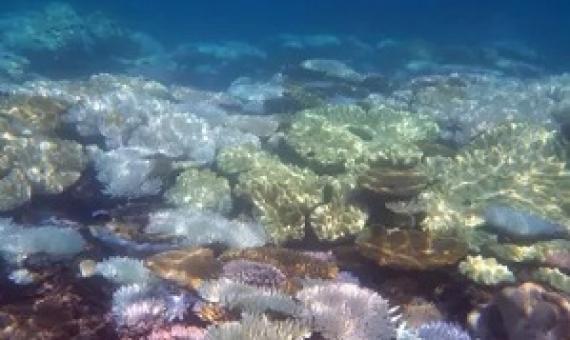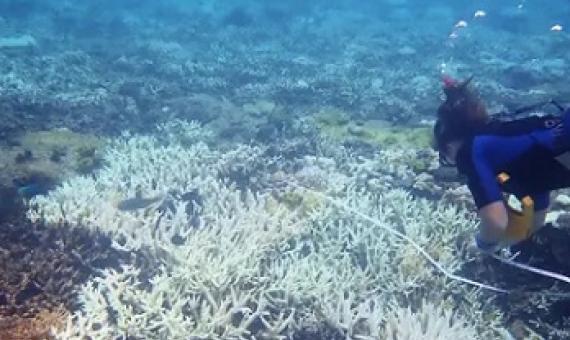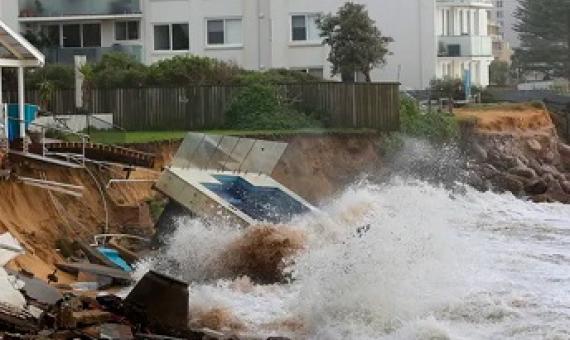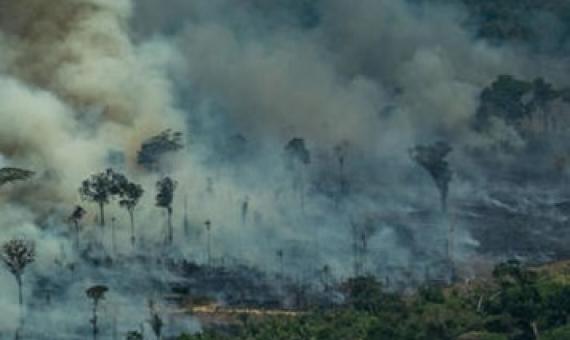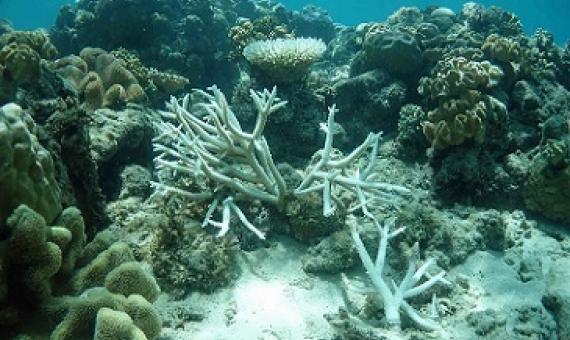The government agency responsible for the Great Barrier Reef has confirmed the natural landmark has suffered a third mass coral bleaching episode in five years, describing the damage as “very widespread”.
The Great Barrier Reef has experienced a third mass coral bleaching event in five years, according to the scientist carrying out aerial surveys over hundreds of individual reefs.
As the nation shifts abruptly into the fight against coronavirus, a question arises: could social isolation help reduce an individual’s production of greenhouse gases and end up having unexpected consequences for climate change?
Stock markets around the world had some of their worst performance in decades this past week, well surpassing that of the global financial crisis in 2008...
Scientific Consensus Statement 2013 - Chapter 2: Resilience of Great Barrier Reef marine Ecosystems and Drivers of Change
This chapter focuses on the temporal dynamics, spatial extent and cumulative impacts of current and future drivers of change on Great Barrier Reef water quality, and subsequent impacts on marine ecosystems in the Great Barrier Reef Marine Park. These include the acute influences of large flood events driven by extreme weather, salinity stress, tropical cyclones, thermal stress, crown-of-thorns starfish outbreaks and other anthropogenic drivers such as coastal development activities.
Tropical forests are taking up less carbon dioxide from the air, reducing their ability to act as “carbon sinks” and bringing closer the prospect of accelerating climate breakdown.
For many coastal regions, sea-level rise is a looming crisis threatening our coastal society, livelihoods and coastal ecosystems. A new study, published in Nature Climate Change, has reported the world will lose almost half of its valuable sandy beaches by 2100 as the ocean moves landward wi
An expansive study traced the growth of 300,000 trees over three decades in Africa and the Amazon and compared how forests on the two continents were faring.The researchers estimate that intact tropical forests absorbed 46 billion tons of carbon dioxide from the atmosphere in the 1990s, but this
The Great Barrier Reef is still at risk of a widespread outbreak of coral bleaching despite a cyclone to the far west helping to temporarily cool stressed corals, according to US and Australian science agencies.
The world’s richest man unveiled a fund to help climate scientists and activists, an escalation of his philanthropic efforts.

